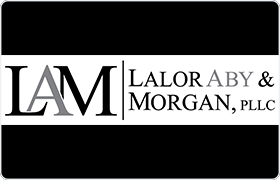Canton Estate Lawyer, Mississippi
Sponsored Law Firm
-
 x
x

Click For More Info:
-
Lalor Aby & Morgan, PLLC
230 Trace Colony Park Dr. Suite 4 Ridgeland, MS 39157» view mapEstate Law Get the Legal Support You Need
If you need an experienced litigation attorney, look no further than Lalor Aby & Morgan, PLLC.
800-758-9910
Tabatha McCall Stern
✓ VERIFIEDEstate, Business, Estate Planning
T. McCall Stern ("McCall") is active in her community and has a passion for serving others. She practices predominately in the areas of estate plannin... (more)
Sean A Milner
Land Use & Zoning, Housing & Construction Defects, Wills, Divorce
Status: In Good Standing
James Harrell Herring
Estate, Family Law, Adoption, Divorce & Family Law
Status: In Good Standing Licensed: 61 Years
Lloyd Gilmer Spivey
Industry Specialties, Estate, Civil & Human Rights, Business
Status: In Good Standing Licensed: 62 Years
Francis Starr Springer
Power of Attorney, Estate, Divorce & Family Law, Criminal, Mass Torts
Status: In Good Standing
Elizabeth Lucinda Wynn
Power of Attorney, Trusts, Divorce & Family Law, Elder Law
Status: In Good Standing
Karen E. Livingston-Wilson
Other, Government, Estate Planning, Estate
Status: In Good Standing Licensed: 40 Years
 Owen Lalor Ridgeland, MS
Owen Lalor Ridgeland, MS

